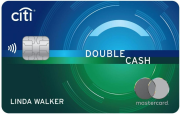The content on this page is accurate as of the posting date; however, some of the offers mentioned may have expired.

Myths can really, unfortunately, stick with you, for better or for worse. Take Santa Claus, Bigfoot, etc. Of course there are myths that are far less ridiculous and actually hold some degree of truth in them, which make them all more dangerous. And especially when they are widely accepted myths concerning credit cards.
“People can never be too careful about what they choose to believe when it comes to their credit, or their finances at large,” stated Arnold Taubman, an economist. “It’s all too sensitive of an area and all too easily ruined, when something goes awry.”
Taubman then went on to address several beliefs of credit card carriers often have and set them on the “right path,” so to speak.
Good Credit
“Sometimes people are led to think- through the fault of advertisers and improper financial education, of course – that there’s no way to acquire good credit without a credit card and that’s absolutely not true,” he said.
Taubman stressed one key area some users may have underestimated in the past: credit histories.
“People need to realize how long you have an account open is what counts the most,” he addressed. “You can’t spend excessively and you have to make your payments on-time; that accounts for a lot. Also, you can also build up your credit simply with opening and replaying a loan, like a student loan, for example.”
Credit Card Debt
Then, there is the whole matter of credit card debt. A study by Credit-Land over the course of this past year showed that, in the past second quarter of 2011, credit card debt hit levels of over $18 billion (although other studies have showed more and more Americans are getting better at paying off their card debts).
“Some people want to believe that having a little bit of debt is fine and dandy. While a little bit may not hurt, keep thinking about the interest that will rack up through time,” Arnold Taubman was quick to remind any concerned readers.
“It’s better to nip these things in the bud and simply just not let yourself carry any amount of credit card debt whatsoever. Unfortunately, if you don’t watch yourself, it can have a domino effect,” he summed up.
Minimum Payments
“Another myth I often find myself having to combat is that of ‘oh, if I just make my minimum payment, I’ll be set. I’ll pay down my debt.’ There’s some truth to it, yes, but it will sure take a very long time and you have to ask yourself- do I really have that time?”
In fact, if you try and make more than that minimum, you might find yourself in the better eventually.
“You should then be able to pay off your debt a lot sooner. Otherwise, you might find yourself, stuck for a long time,” Taubman said.
Defaulting On An Unsecured Card
“If you default on an unsecured credit card – which might mistakenly come off as being acceptable to some degree – your possessions are in real danger of being, well, repossessed,” Taubman said of this widely-believed myth. “Also, your credit score will be lowered, so this is not a safe route to take by any means imaginable.”
Close Off Your Unused Accounts
“No, no, absolutely not,” said Taubman. “Having unused credit available can actually help your credit score look better. “This sends a signal to potential investors that you don’t go out and stack up more debt whenever the opportunity presents itself to you.”
Also: positively paying off these unused accounts can help your credit score out a great deal. “Even more than opening new cards would,” Taubman adds.
There are a myriad of more credit card myths out there that people are prone to believe, but “if you practice financial savvy and educate yourself properly, you should be protected well enough. If you don’t feel that way yet, maybe it’s best to see a financial advisor for a consultation,” Taubman finished. “Credit cards are supposed to help you after all, not hurt you.”





